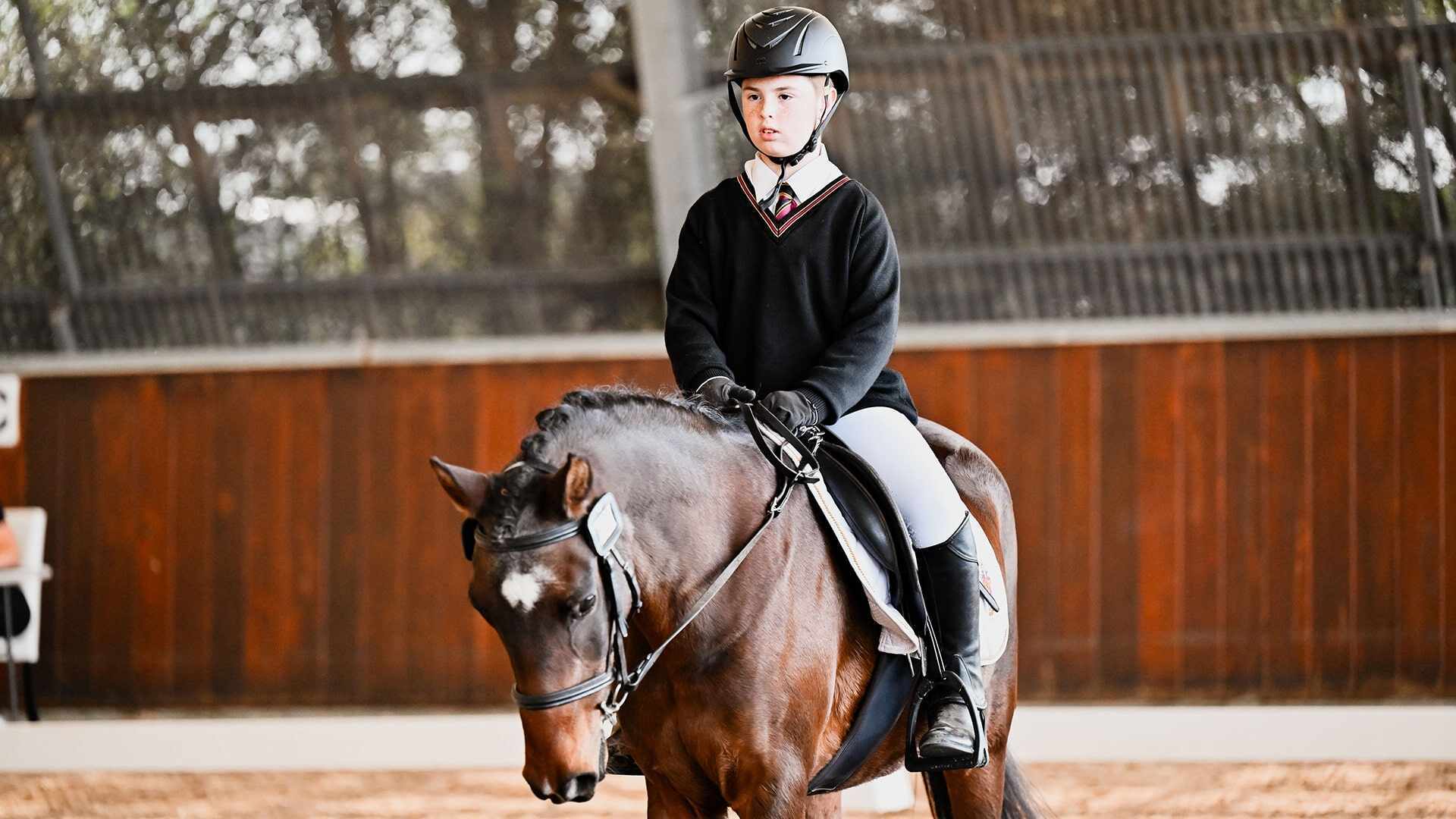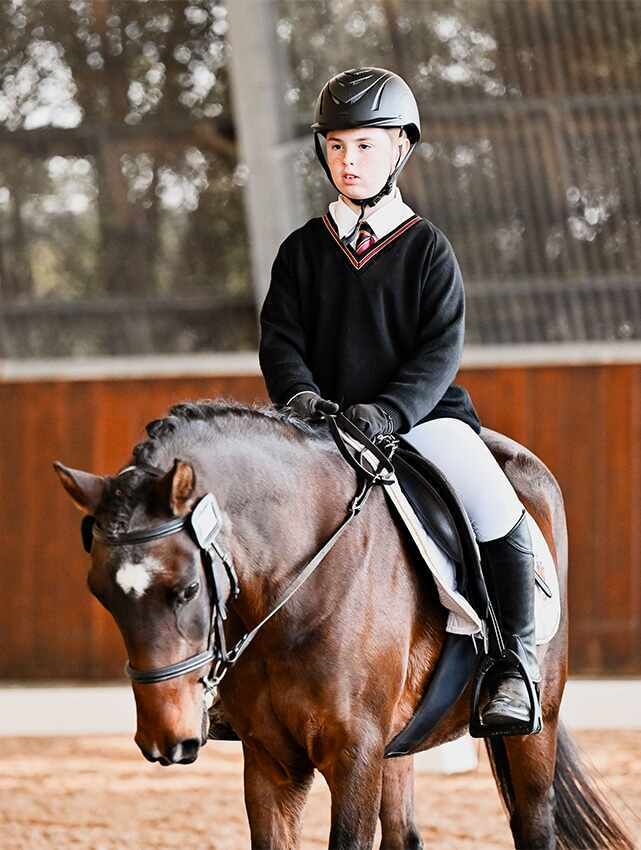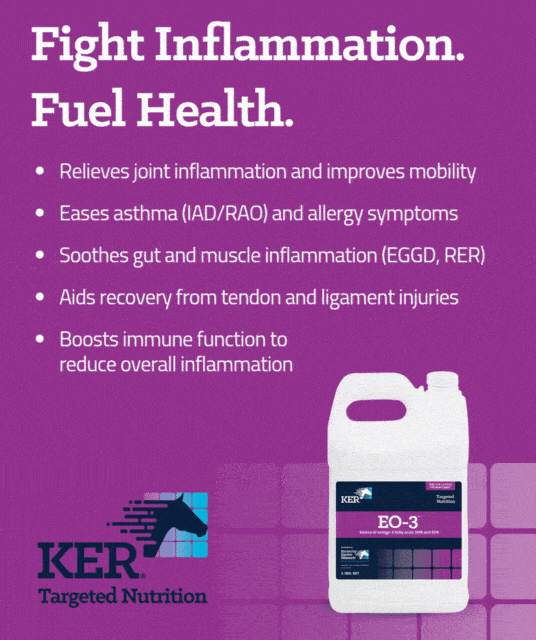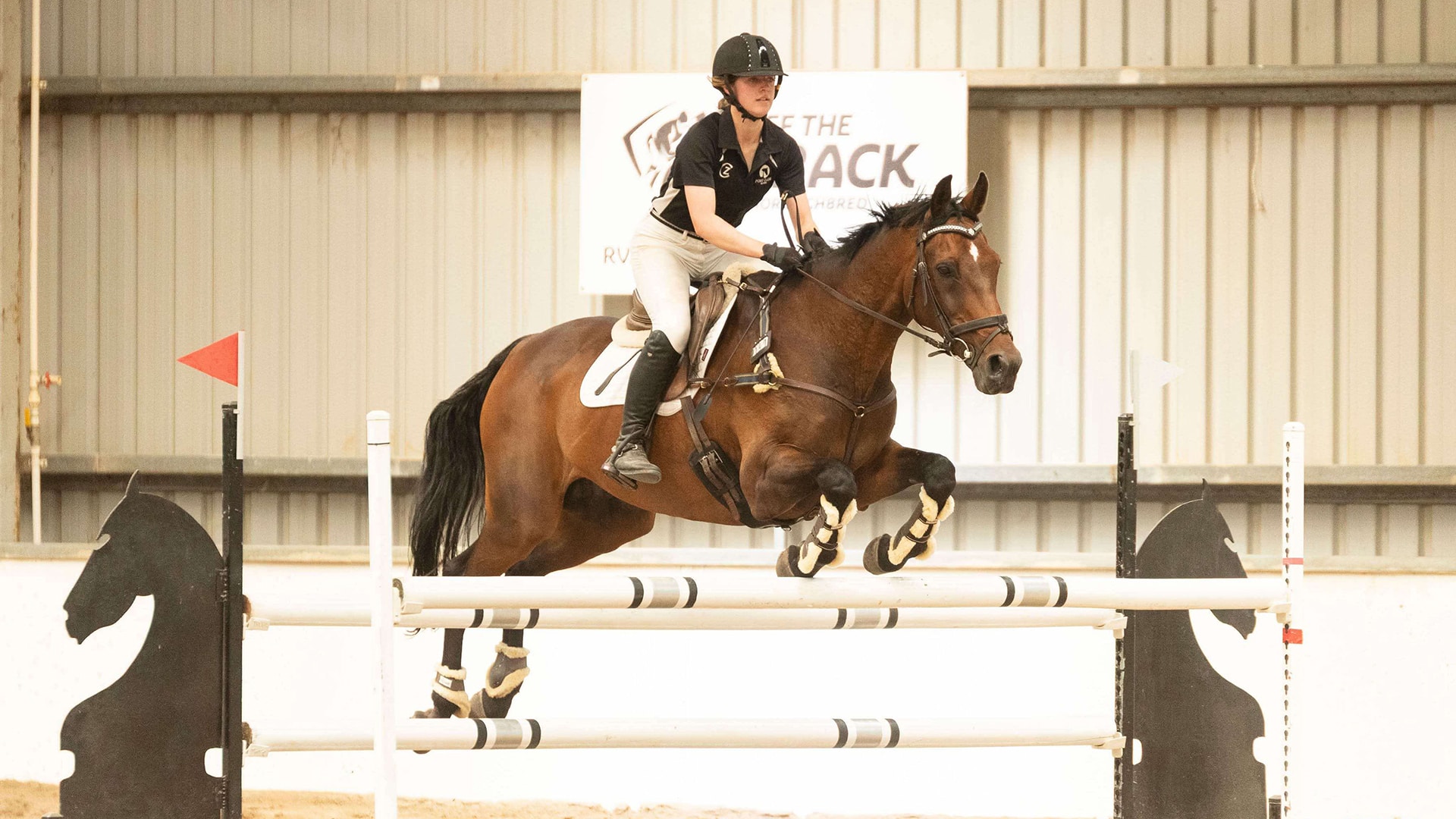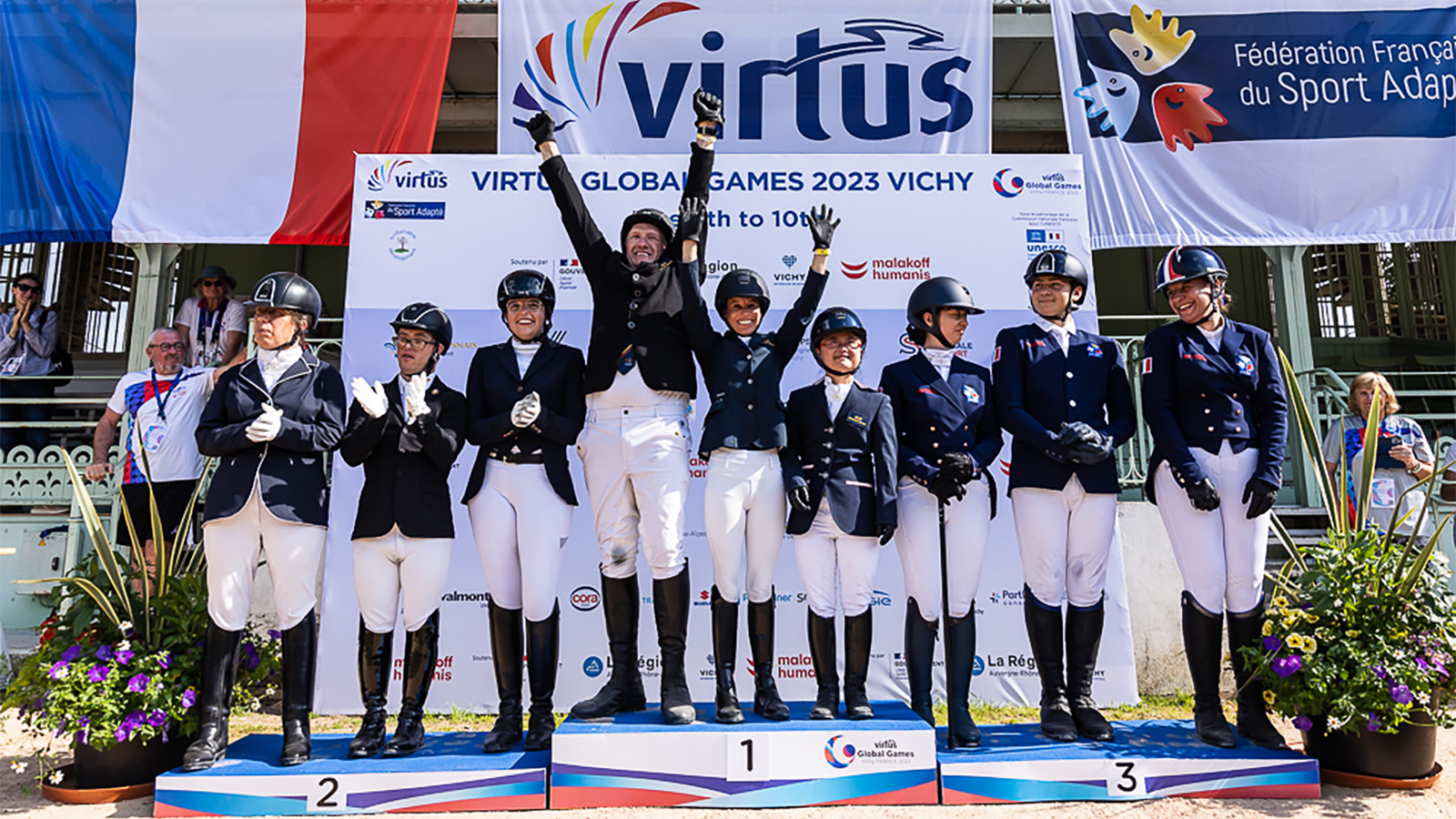The 2025 Petstock Equestrian Victoria Interschool State Championships introduced All Abilities classes, providing children with additional needs a pathway to compete, build confidence, and experience the joy of Interschool competition alongside their peers.
For many young riders across Australia, Interschool competitions offer the thrill of representing their schools and testing their skills in a supportive yet competitive environment. However until recently, children with extra needs often had no comparable opportunities.
Lauren Smith, a passionate advocate for inclusive equestrian sport and Interschools Victoria Committee member, has led a working party developed by the Interschool Victoria (ISV) committee who recognised this gap and took action to add All Abilities dressage and showing classes to the 2025 Championships schedule.
Lauren explains that while entry-level opportunities exist for riders with extra needs via associations such as Pony Club Australia (PCA) and Riding for the Disabled Association of Australia (RDA), there has long been a lack of options within Interschools.
“Every other school age rider across the country has an opportunity to go and compete at Interschools, but there is no opportunity for a child with additional needs to do the same and compete against riders of a similar ability,” she explains.
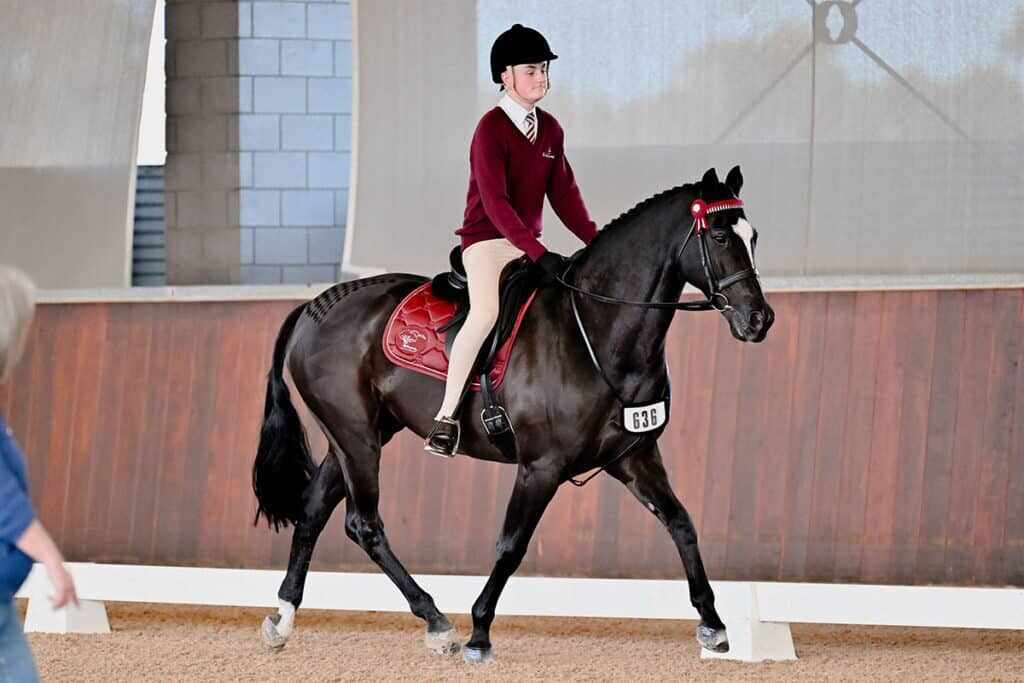
Showing and dressage classes were on offer to riders. Image by Click Capture.
“[Fellow ISV committee member] Julia Williams asked if I could assist and head up the working group at the state level to set out to incorporate classes at our State Championships this year. Julia has worked alongside me… her depth of knowledge and passion for Interschools is such an asset to our Victorian riders.”
Lauren’s motivation for change is also personal. “I’ve got three kids and my youngest has additional intellectual and physical needs. He rides at home and at Pony Club, but I could see that there were limited opportunities for him to go out and compete, as well as a gap in the pathway to higher lever competition for riders with additional needs.”
“It was not only for my little boy; we have some amazing school aged riders in the equestrian community that equally deserve to compete at a state championship level. Our ISV committee have now given these riders access to an inclusive high-level event, where they can go and ride in a safe environment, but still be with their school friends.”
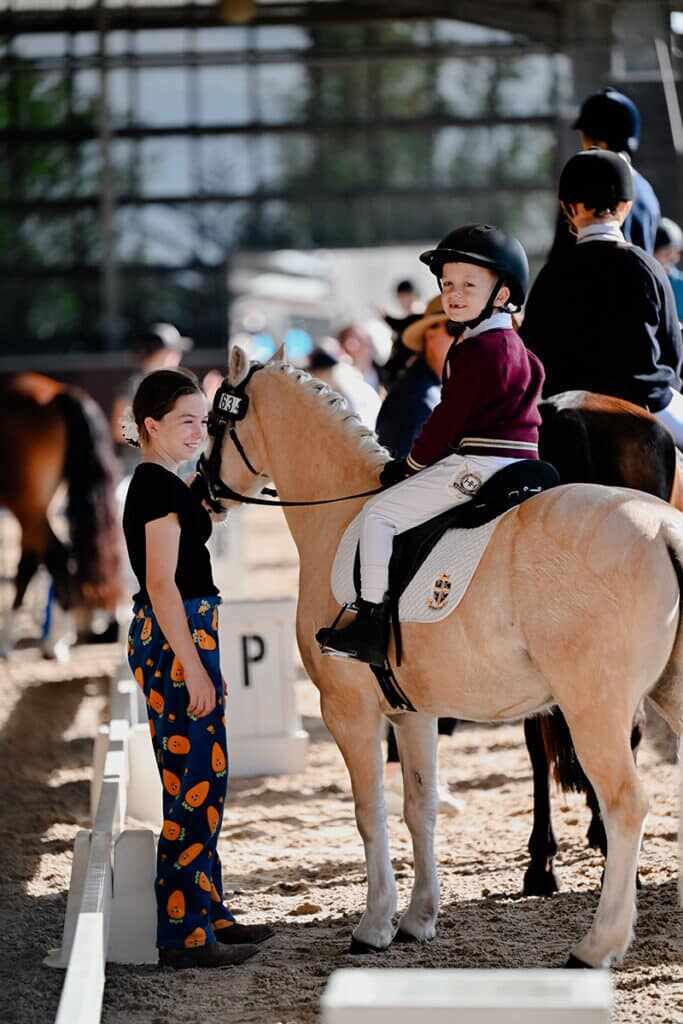
There was no shortage of smiles from riders, as well as family and friends. Image by Click Capture.
They also consulted industry leaders Sally Francis and Julia Battams, both highly experienced in coaching Para Dressage riders from grassroots to international level. Sally has worked extensively with RDA, while Julia is the founder of not-for-profit organisation Equine Pathways Australia.
Lauren reflects on the incredible support from the equestrian community. “It was such an amazing process, just getting to talk to key people that are so passionate and have so much knowledge. Julia Battams is so busy with her role as our head Australian Para Dressage coach and her Equine Pathways Australia program, but she was more than happy to be consulted. Sally Francis was also an incredible support – she had two of her students that came and competed in the All Abilities classes on her school horses.”
For the first year running these classes, Lauren explains how they aimed to keep the ‘eligibility’ process as open and inclusive as possible. “For the State Championships, riders chose a level that met their ability, and then they also needed to show they were eligible. This could have been an existing Pony Club exemption or an official dressage exemption, or they may already have already been riding as Virtus or Para rider [Sports Inclusion Australia classification]. Outside of that, they were also able to apply directly and supply some documentation that showed they had a need to be in an All Abilities class.”
The classes follow the Para Dressage levels. “Para means parallel and that’s the whole premise, so that people with extra needs should be able to ride alongside other competitors,” explains Lauren.
By aligning with Para Dressage tests – which are also in use for Virtus Equestrian competitions – the All Abilities classes contribute to a competitive pathway. “It allows us to give the kids interested in competition a pathway… we’ve got the beginning of a pathway to get them to go to their own State Championships. And then the goal is that next year they have the opportunity to progress to Nationals [Australian Interschool Championships],” says Lauren.
Lauren highlights the importance of early competitive experience. “It’s all well and good for kids to have aspirations of competing in open Para Dressage and Virtus Equestrian classes, but if they haven’t been out and had the test miles in the competition arena, it’s a massive barrier to success. It’s a big step… to learn ring craft and to have the confidence to step in and present to a judge and to not be flooded with nerves. So, that’s the premise of getting them out competing as kids at Interschools. It gives them greater opportunity to develop a future in the sport”.
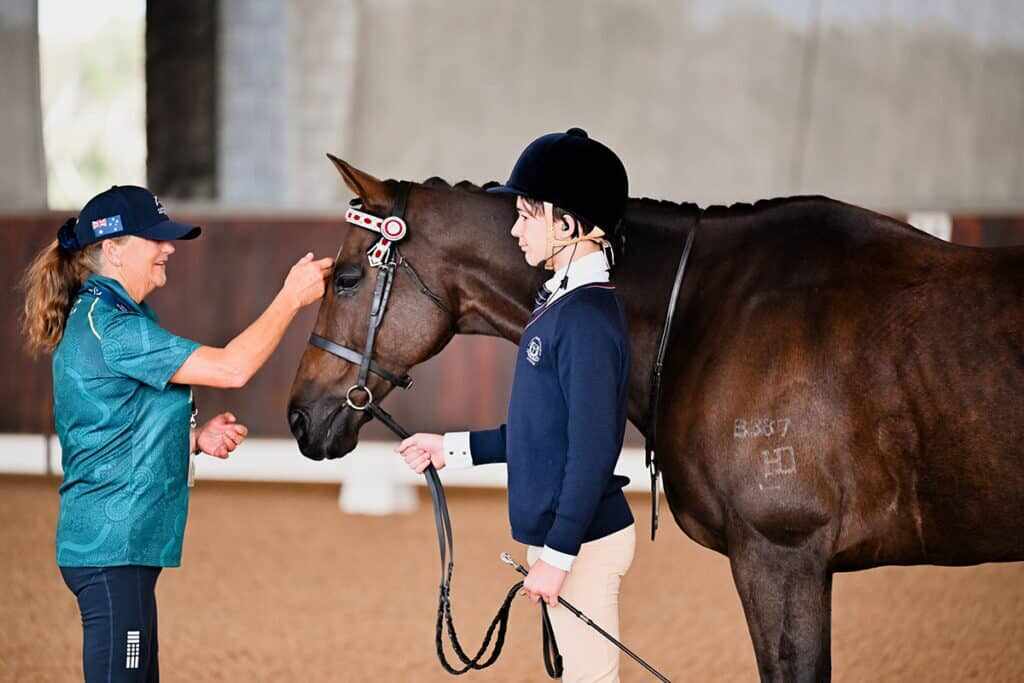
Paralympian Di Barnes judged the showing classes. Image by Click Capture.
A RESOUNDING SUCCESS
The debut of the All Abilities classes at the 2025 State Championships was a resounding success. “On the day this year at our States, it was buzzing. It was the most special day to be a part of. There were so many happy tears from parents, grandparents and friends there to support the riders… it was just beautiful to watch. And not only the children, but the horses as well. They are just phenomenal animals, and they carried these kids around so willingly as a team,” reflects Lauren, adding that the equine competitors ranged from small ponies to off-the-track Thoroughbreds.
Practical considerations were crucial. “The State Championships are hectic with hundreds of competitors across all the various divisions. It’s a huge event with high energy! We had full use of the indoor arena at Boneo Park for the day of the All Abilities classes, which aided the riders to feel safe and not become overwhelmed from the atmosphere of the event,” explains Lauren.
Lauren highlighted that the judges were also integral to the success of the new classes in 2025. “Rachel Edwards was our dressage judge… she was absolutely phenomenal. Rachel has an extensive background judging and coaching school-aged riders of all abilities. Our judge for the show horse classes was Dianne Barnes, Australian Paralympian and World Championship representative. Both judges were so patient and made each rider feel special on the day.”
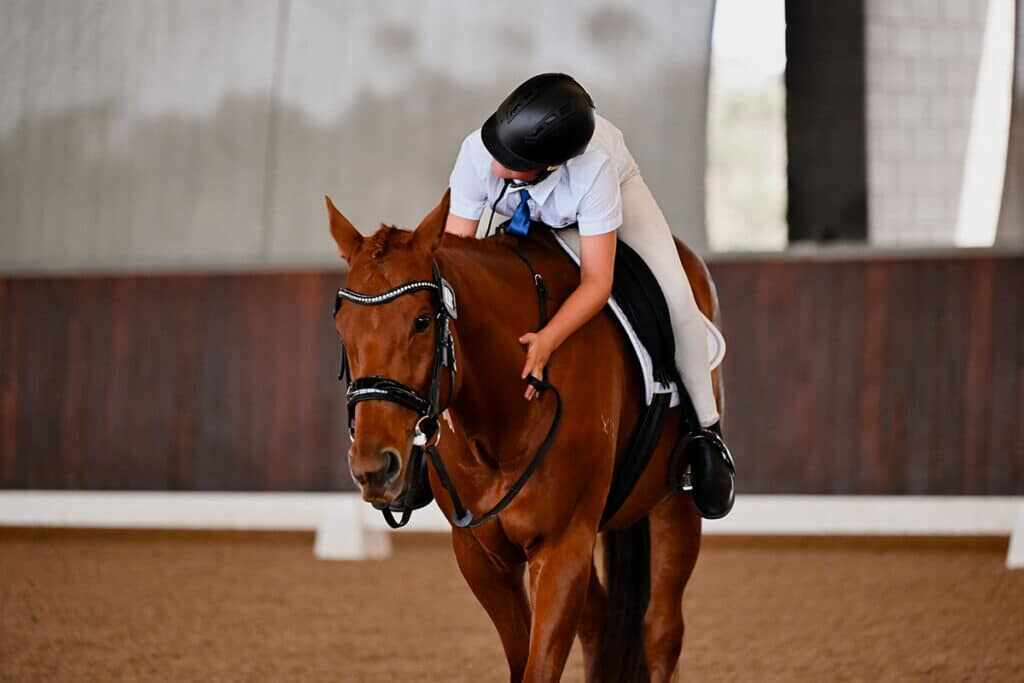
A rider rewards their horse after a successful competition. Image by Click Capture.
NEXT STOP, THE NATIONALS
Feedback from the State Championships was overwhelmingly positive, and the All Abilities dressage classes subsequently ran at the Victorian Equestrian Interschool Series (VEIS) Grand Final event a few weeks later.
Looking ahead, Lauren hopes All Abilities classes can be offered at more events across Victoria to get more riders out into the competition arena. “It’s exciting and the intention of the format is right. We will continue to work to develop the format for our future riders; it’s just beautiful to watch them out on their ponies competing. “Meanwhile at a national level, Equestrian Australia has now developed a working group to guide the development of clear eligibility and guidelines for events so we can work towards a rollout of All Abilities classes in 2026 to all states and territories.”
The 2025 Petstock Equestrian Victoria Interschool State Championships marked a turning point for inclusivity in equestrian sport. Thanks to the vision of key people on the Interschool Victoria committee and the collective effort of the working group and wider equestrian community, children with additional needs now have the opportunity to compete, gain confidence, and experience the joy of Interschool competition alongside their peers. EQ
